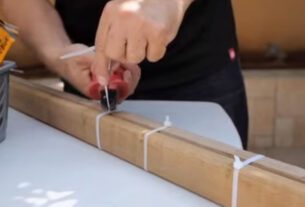On today’s daf, we read about the burial of the biblical patriarch Jacob in the Cave of Machpelah. As with the funerals of prominent people to this day, Jacob’s burial was attended by leaders who would have been the equivalent in stature to modern heads of state.
The Gemara describes the scene:
They all came to wage war, but once they saw the crown of Joseph hanging on the casket of Jacob, they all took their crowns and hung them on the casket of Jacob. A sage taught: Thirty-six crowns were hung on the casket of Jacob.
From this passage, it seems that these leaders came not to honor Jacob, but rather to attack his funeral. And who were these leaders? According to Rashi, they were 12 princes of Ishmael and 23 chiefs of Esau — traditional enemies of Israel. Yet seeing how Joseph, the leader of Egypt (also an enemy nation) paid his respects to Jacob, they changed their minds and followed suit.
Not everyone was thrilled to honor Jacob, however. The Gemara continues:
Once they reached the Cave of Machpelah, Esau came and was preventing them (from burying Jacob there).
He said to them: It says: “And Jacob came unto Isaac his father to Mamre, to Kiryat Arba, the same is Hebron, where Abraham and Isaac sojourned” (Genesis 35:27).
And Rabbi Yitzhak says: It is called Kiryat Arba because there were four couples buried there: Adam and Eve, Abraham and Sarah, Isaac and Rebecca, Jacob and Leah.
Esau said: Jacob buried Leah in his spot, and the spot remaining is mine.
We might have thought that the sibling rivalry between Jacob and Esau ended when they made up in chapter 33 of Genesis, but this passage suggests otherwise. Here we learn that at the time of Jacob’s burial, Esau attempts to prevent him from being interred in the Cave of Machpelah, arguing that Jacob’s slot rightfully belongs to him. Does it?
The children of Jacob said to Esau: You sold your rights to Jacob.
Esau said to them: Though I sold the birthright, did I sell my rights to the burial site as an ordinary brother?
They said to him: Yes, as it is written that Joseph stated: “My father made me swear, saying: Behold, I die; in my grave that I have dug for me in the land of Canaan, there shall you bury me” (Genesis 50:5).
Esau tries to claim that the sale of his birthright to Jacob didn’t include forfeiting the right to burial in the Cave of Machpelah, but Jacob’s descendants aren’t buying it. They cite a biblical verse in which Joseph reports that Jacob made him swear to bury him in a grave in the land of Canaan. The word for dug, kariti, shares a root with the word for sale, mekhira, suggesting that Jacob’s insistence that he be buried in a grave dug in Canaan is a reference to Esau’s sale of the birthright.
The story doesn’t end there — Esau demands proof of the bill of sale, necessitating a quick trip back to Egypt to retrieve it. Meanwhile, Jacob’s sons grow impatient and hit Esau with a club, causing his eyes to fall out of his head onto Jacob’s coffin and the deceased Jacob to open his eyes and smile.
The context for all the stories on today’s daf is the Gemara’s many pages of discussion about the concept of “measure for measure” — the notion that those who do wrong are punished in proportion to their wrongdoing, and vice versa: Those who do good are rewarded. The mishnah back on Sotah 9 gave several examples of biblical figures who were correspondingly punished or rewarded, and the rabbis have now spent several pages working through other examples to show this principle in action.
Now we get another: Although Joseph was not the oldest brother, he was given central responsibility for his father’s burial because he was the viceroy of Egypt. This was a proportionate reward for Joseph (and punishment for his brothers) because the whole reason Joseph was in a position of royalty was because his brothers sold him into slavery in Egypt. Thus Joseph is more deserving to bury their father than they are and to put the first crown — his own — on Jacob’s grave.
Read all of Sotah 13 on Sefaria.
This piece originally appeared in a My Jewish Learning Daf Yomi email newsletter sent on April 11th, 2023. If you are interested in receiving the newsletter, sign up here.
The post Sotah 13 appeared first on My Jewish Learning.




